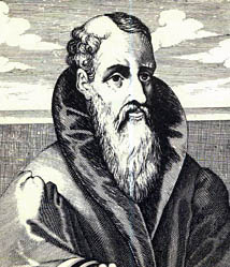
Whilst in prison accused of treason and magic, Boethius became greatly troubled with the idea of an omniscient God as he considered this concept and human freewill to be incompatible. He questioned the importance of prayer and rewarding and punishing if all that we do is predestined by God. In book V of his ‘Consolation of Philosophy’ Boethius explores this dilemma with the fictional character of Lady Philosophy, but multiple philosophers have since contested his conclusions.
Boethius believed in a timeless God that has “simultaneous possession” over life and sees everything in one moment, “at a glance” if you will. For Boethius, God does not experience past, present and future in a chronological timeframe like us humans for we are temporal beings (restricted within our time frame) but God is atemporal. Boethius realised that if God is omniscient and has foreknowledge then we cannot truly be free so cannot be rewarded and punished justly. He solves this in his dialogue through Lady Philosophy with the concepts of simple and conditional necessity. The conditional necessity is the choice of decision added to a fixed simple necessity. To explain this Boethius created the analogy of a man out for a walk on a sunny day; to an observer that the sun is both shining and the man is walking are both necessary but in different ways. The sun is shining as a necessity, at certain times of year in certain weather the sun will always shine but the man has chosen to walk. The simple necessity of the man is that he has legs, the conditional necessity is the way he uses them to get around and could adapt to cycle with his simple necessity to be more productive and go faster. This addition of the condition, the ability to add choice to our fixed simple necessity, is what gives us freewill; this permits the “Liberty of Spontaneity” and therefore God cannot be held responsible for our actions.
In ‘The God Delusion’ Richard Dawkins argues that omniscience and freewill are incompatible because if God knows the future or has any sort of power over future events then we might argue predestination and freewill is not present. Therefore God cannot reward and punish justly. We can see that different interpretations of God can still allow for the existence of human freewill and therefore the right for God to reward and punish justly. However, Boethius’ conditions can be criticised; for example, if we are conditioned by simple necessity to be immoral we can be argued to lack some freewill in the way our lives turn out thus is it fair for God to reward and punish justly? Luis de Molina somewhat solves this via his theory of Middle knowledge. He argued that God is omniscient as he has knowledge of all counterfactuals (every possible decision and outcome) but not which decisions people will make/what path they will follow. This allows God a limited omniscience and permits the Liberty of Indifference which is the ability to choose any path in a situation (propounded by Locke). Molina stated that in order for God to give us benevolent leadership and guidance as he would, having Divine Providence, he must possess middle knowledge so he will know the outcome of any given path we might choose. This allows freewill as God has a limited omniscience (knows all possible futures but not one indefinitely).
What's your opinion? We'd love to know. Leave a comment below and tell us, do you think a God can reward and punish people for their actions if he already knows what they are going to do? Can a God be omniscient (all seeing) and yet allow humanity to have free will at the same time? Can we make choices or are our lives pre destined? This is the wonder of Philosophy; there is no correct answer as we cannot know, but isn't it fun to debate?!
IMAGE: http://www.yenra.com/quotations/boethius.jpg - Boethius

0 Comment:
Be the first one to comment on this article.